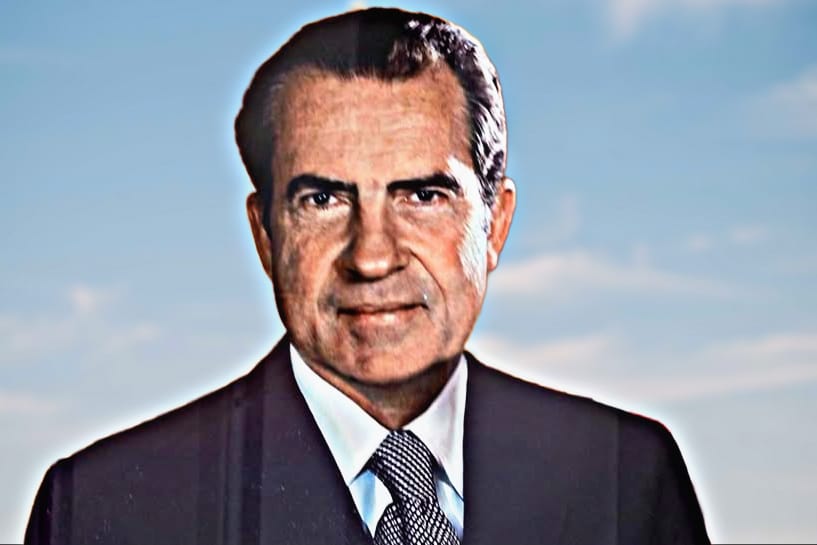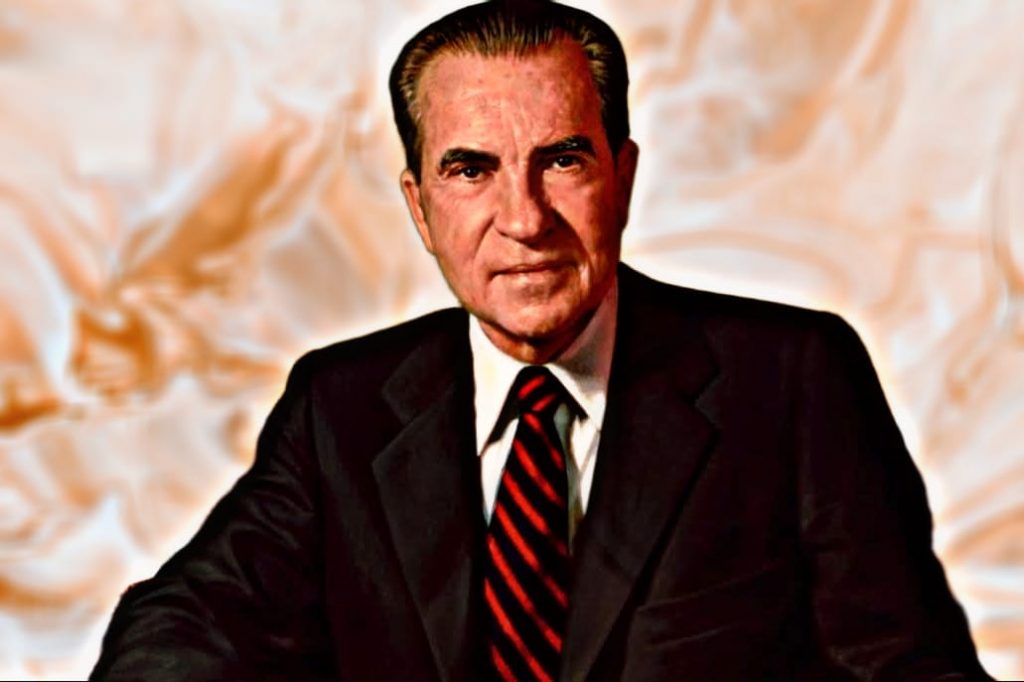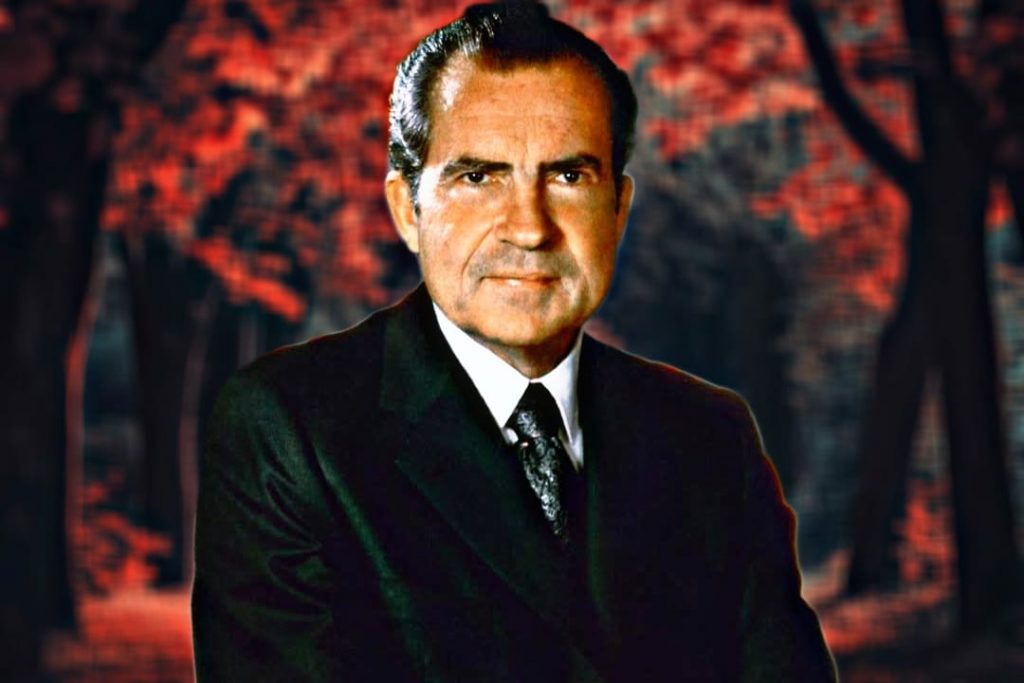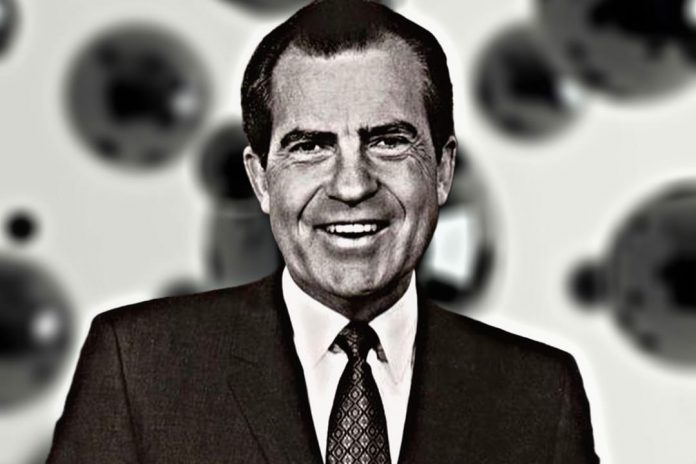Richard Nixon, the 37th President of the United States, remains one of the most polarizing figures in American history. Known for his complex persona, remarkable political career, and his eventual resignation in the wake of the Watergate scandal, Richard Nixon legacy is both controversial and impactful. As a staunch Cold War warrior, a significant player in U.S. foreign policy, and the president who oversaw one of the most significant political scandals in modern history, Richard Nixon time in office left an indelible mark on the nation’s political landscape.
In this article, we will take a deep dive into the life, presidency, and legacy of Richard Nixon, examining his early years, political rise, accomplishments, scandals, and lasting influence. Whether admired for his foreign policy achievements or criticized for his role in Watergate, Nixon’s life offers an intricate narrative that continues to shape discussions on presidential power, ethics, and governance.
Early Life and Political Rise

Richard Milhous Nixon was born on January 9, 1913, in Yorba Linda, California, into a modest family. His parents, Francis A. Nixon and Hannah Milhous, instilled in him a strong sense of discipline, hard work, and a deep commitment to his education. Nixon’s early life was shaped by adversity. His family faced financial struggles, and Nixon himself was often a victim of bullying in school due to his awkward demeanor. Nevertheless, Nixon excelled academically, eventually attending Whittier College and later Duke University School of Law.
Richard Nixon political career began in the late 1940s. After serving in the U.S. Navy during World War II, Nixon entered politics, winning a seat in the U.S. House of Representatives in 1946. His rise in American politics was swift. In 1950, Nixon was elected to the U.S. Senate from California, and it was during this period that he gained national prominence for his staunch anti-communism and aggressive stance on the Cold War.
The Rise of Richard Nixon National Profile
Richard Nixon national political career truly skyrocketed when he was selected by President Dwight D. Eisenhower as his running mate in the 1952 presidential election. The Eisenhower-Nixon ticket won in a landslide, with Nixon becoming Vice President of the United States in 1953. As vice president, Nixon traveled extensively, representing the U.S. in various diplomatic missions, and solidified his reputation as a savvy and determined politician.
One of Richard Nixon most significant moments as vice president came during the 1959 visit to the Soviet Union, where he participated in the famous “Kitchen Debate” with Soviet Premier Nikita Khrushchev. This event marked Richard Nixon as a staunch advocate for capitalism and a fierce opponent of communism, positions that would define much of his political career.
Richard Nixon First Presidency (1969–1974)

Richard Nixon was elected President of the United States in 1968, defeating Democratic candidate Hubert Humphrey. Nixon’s victory was part of a larger political shift in America, as the nation was experiencing deep divisions over the Vietnam War, civil rights movements, and growing discontent with the liberal policies of the previous decade. Nixon’s campaign slogan, “Bring us together,” was a promise to restore stability and peace to a divided nation.
Domestic Policies: The Silent Majority and New Federalism
As president, Richard Nixon sought to appeal to the so-called “Silent Majority” – middle-class, conservative Americans who felt alienated by the social and cultural changes of the 1960s. Nixon’s approach to governance was marked by pragmatism. He pursued a policy called New Federalism, which sought to shift power from the federal government back to the states. This included measures such as revenue sharing, where federal funds were distributed to states and localities to support various programs.
On the domestic front, Richard Nixon implemented several important initiatives. He oversaw the establishment of the Environmental Protection Agency (EPA) in 1970, reflecting his growing concern with environmental issues, even as his administration faced criticism for its handling of the Vietnam War. Richard Nixon also pursued significant civil rights reforms, signing into law the Title IX education amendment, which prohibited discrimination on the basis of sex in federally funded education programs.
Despite these achievements, Nixon’s domestic policies were overshadowed by growing unrest over the Vietnam War, racial tensions, and protests that were sweeping the nation.
Vietnam War and “Vietnamization”
One of the central issues of Richard Nixon presidency was the ongoing Vietnam War, a conflict that had deeply divided the American public. Nixon ran on a promise to end the war, but his strategy of Vietnamization—which aimed to gradually transfer the responsibility of fighting the war to South Vietnamese forces—was controversial.
Richard Nixon decision to expand the war into neighboring Cambodia in 1970 led to widespread protests, including the infamous Kent State shooting, where National Guard troops killed four students during a protest. The invasion of Cambodia triggered massive public outcry, further eroding trust in the Nixon administration.
In 1973, after years of conflict, Richard Nixon announced that the United States had signed a ceasefire agreement with North Vietnam, effectively ending U.S. involvement in the war. However, the war continued for several more years, and the fall of Saigon in 1975 marked the eventual defeat of South Vietnam, leading many to question the effectiveness and morality of Nixon’s war policies.
Détente with the Soviet Union and China
On the international stage, Richard Nixon foreign policy achievements are often regarded as his greatest legacy. Nixon’s policy of détente—a relaxation of tensions—aimed to ease Cold War rivalries between the U.S. and the Soviet Union. In 1972, Nixon became the first U.S. president to visit the Soviet Union, leading to the signing of the Strategic Arms Limitation Treaty (SALT I), which limited the number of nuclear weapons held by both nations.
Perhaps Richard Nixon most famous diplomatic achievement was his groundbreaking trip to China in 1972. In what became known as Nixon’s China Initiative, the president met with Chairman Mao Zedong, marking the first time a U.S. president had visited the People’s Republic of China. The visit opened the door to diplomatic relations between the two countries and changed the course of U.S.-China relations for decades.
The Watergate Scandal and Richard Nixon Resignation

While Richard Nixon foreign policy achievements are lauded, his presidency will forever be overshadowed by the Watergate scandal, one of the most significant political scandals in American history. The scandal began with the break-in at the Democratic National Committee headquarters at the Watergate complex in Washington, D.C., during the 1972 presidential campaign. The burglars were connected to Richard Nixon reelection campaign, and it was later revealed that members of the Nixon administration had attempted to cover up the break-in and obstruct investigations.
As the investigation into the scandal unfolded, it became clear that Richard Nixon had been involved in the cover-up, despite his initial denials. In 1974, after months of growing pressure, the House Judiciary Committee passed articles of impeachment against Nixon for obstruction of justice, abuse of power, and contempt of Congress.
Facing imminent impeachment and the possibility of being removed from office, Richard Nixon became the first U.S. president to resign from office on August 9, 1974. In his resignation speech, Nixon declared, “I have never been a quitter.” His departure marked a historic moment in U.S. politics, and his resignation left the nation deeply divided.
Aftermath of Watergate: Richard Nixon Pardon and Rehabilitation
Following his resignation, Richard Nixon was succeeded by Vice President Gerald Ford, who controversially pardoned him for any crimes he may have committed while in office. This pardon sparked significant public backlash, as many believed Richard Nixon should have been held accountable for his actions. However, Nixon’s post-presidency years were not spent in disgrace. He sought to rehabilitate his image, writing books and giving speeches, often focusing on foreign policy and international relations.
Richard Nixon foreign policy legacy remained intact in the eyes of many observers, especially regarding his role in the opening of China and his handling of the Cold War. In the 1980s, Richard Nixon became an elder statesman, offering advice to presidents and foreign leaders. He also worked on writing his memoirs, which would go on to become bestsellers. Richard Nixon later years were marked by a semblance of redemption, as he became a respected figure in certain political circles despite the enduring stigma of Watergate.
Richard Nixon Legacy: A Complex Figure
Richard Nixon legacy remains one of the most complex in American political history. On one hand, Nixon was a skilled politician and diplomat who made significant contributions to U.S. foreign policy, particularly in his opening to China and efforts to ease tensions with the Soviet Union. His achievements in domestic policy, such as his environmental reforms, were also noteworthy.
On the other hand, Richard Nixon presidency was marred by the Watergate scandal, which ultimately led to his resignation in disgrace. The scandal cast a long shadow over his time in office and forever altered the American public’s perception of presidential power and accountability.
In the years since Watergate, Richard Nixon has been both vilified and praised. To some, he remains a cautionary tale of presidential overreach, while to others, he is a symbol of the complexities of leadership and the pursuit of power. The duality of Nixon’s legacy—his diplomatic successes and his involvement in one of the darkest chapters of American political history—ensure that his place in history remains a subject of debate and analysis.
Conclusion: Richard Nixon Place in History
Richard Nixon political career and presidency were marked by both profound achievements and deep flaws. As a Cold War warrior, a diplomat who reshaped U.S.-China relations, and the president who left office under the cloud of scandal, Nixon’s story is one of triumph and tragedy. His complex legacy continues to be the subject of intense scrutiny and reflection, reminding us that history is rarely ever black and white.
For anyone studying American political history, understanding Richard Nixon life and presidency offers invaluable insights into the challenges and responsibilities of holding the highest office in the land. Whether as a statesman or a scandalized president, Nixon’s life is a powerful reminder of the delicate balance between power, responsibility, and accountability.

